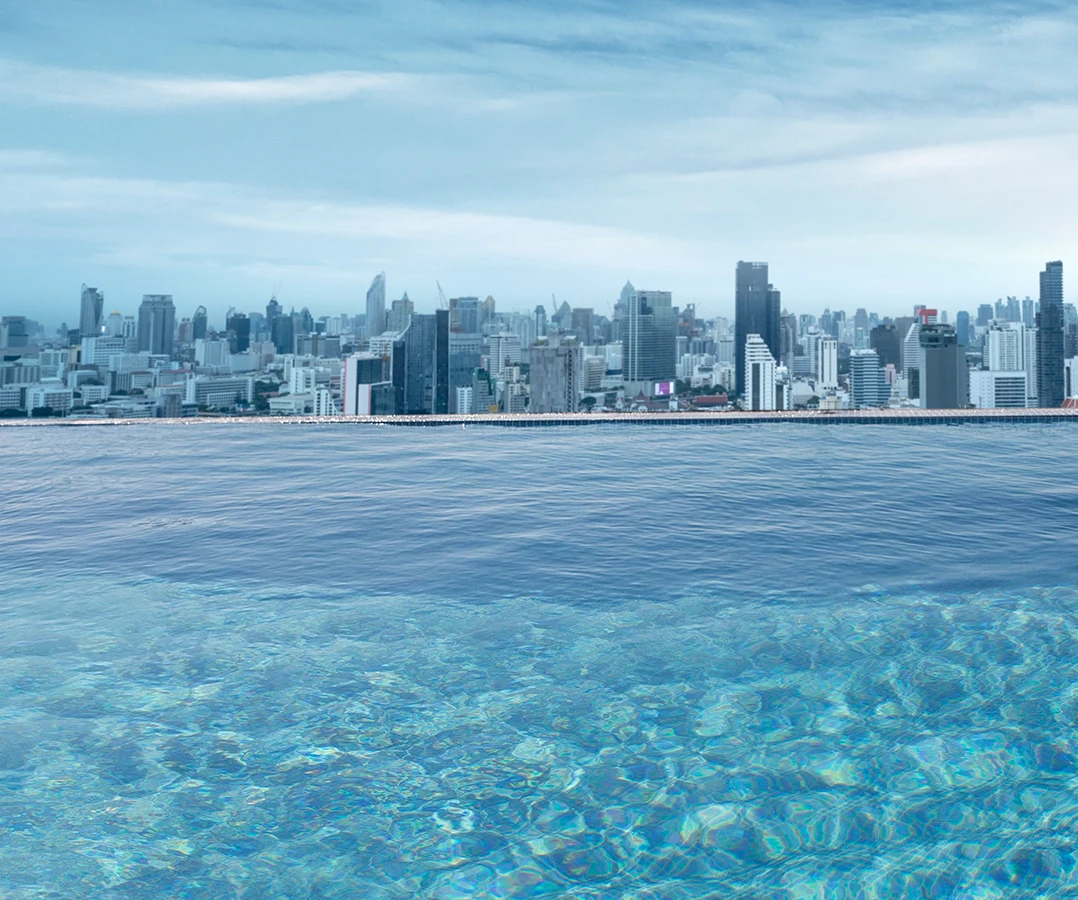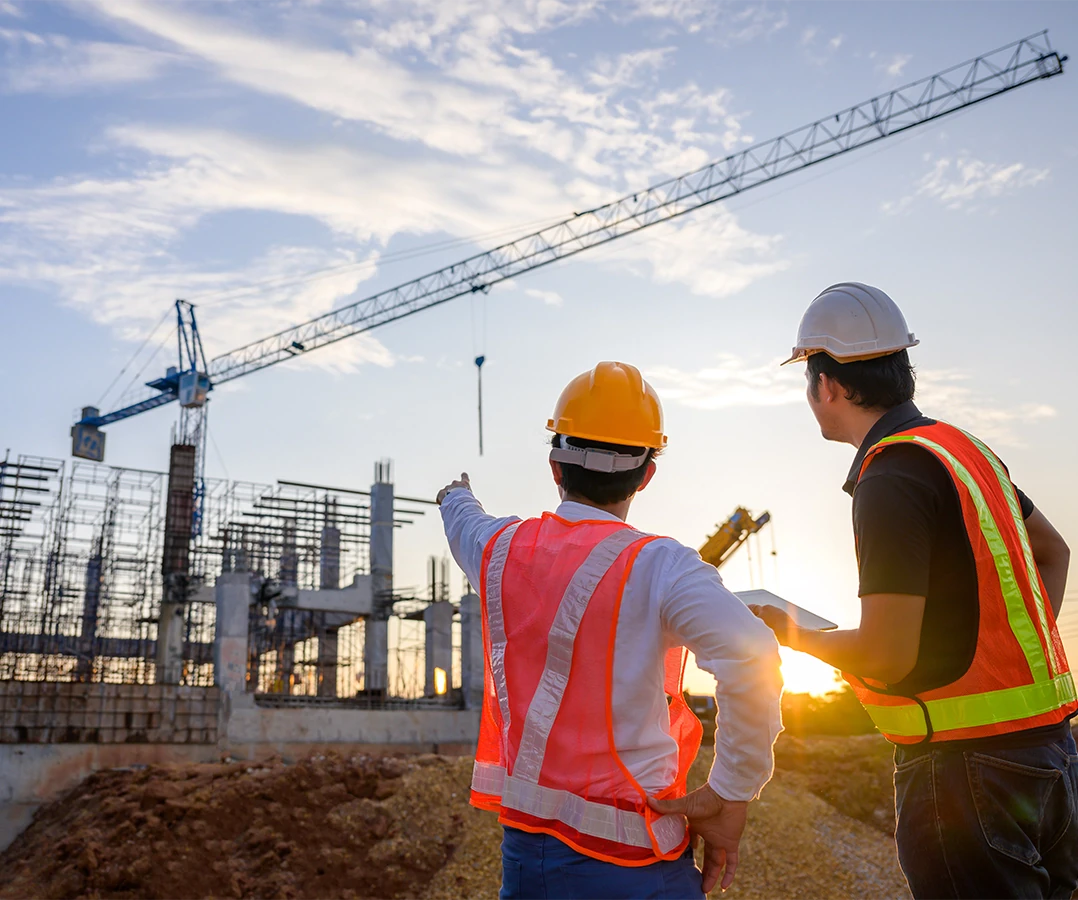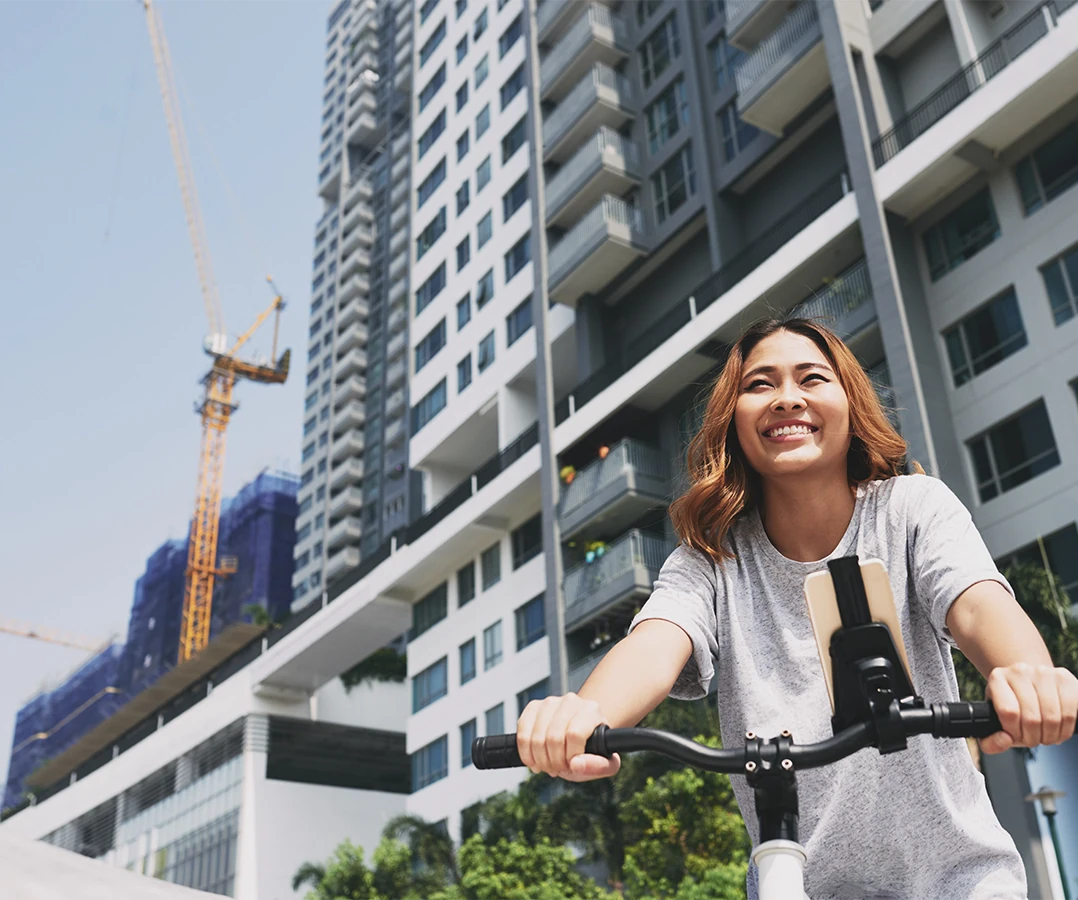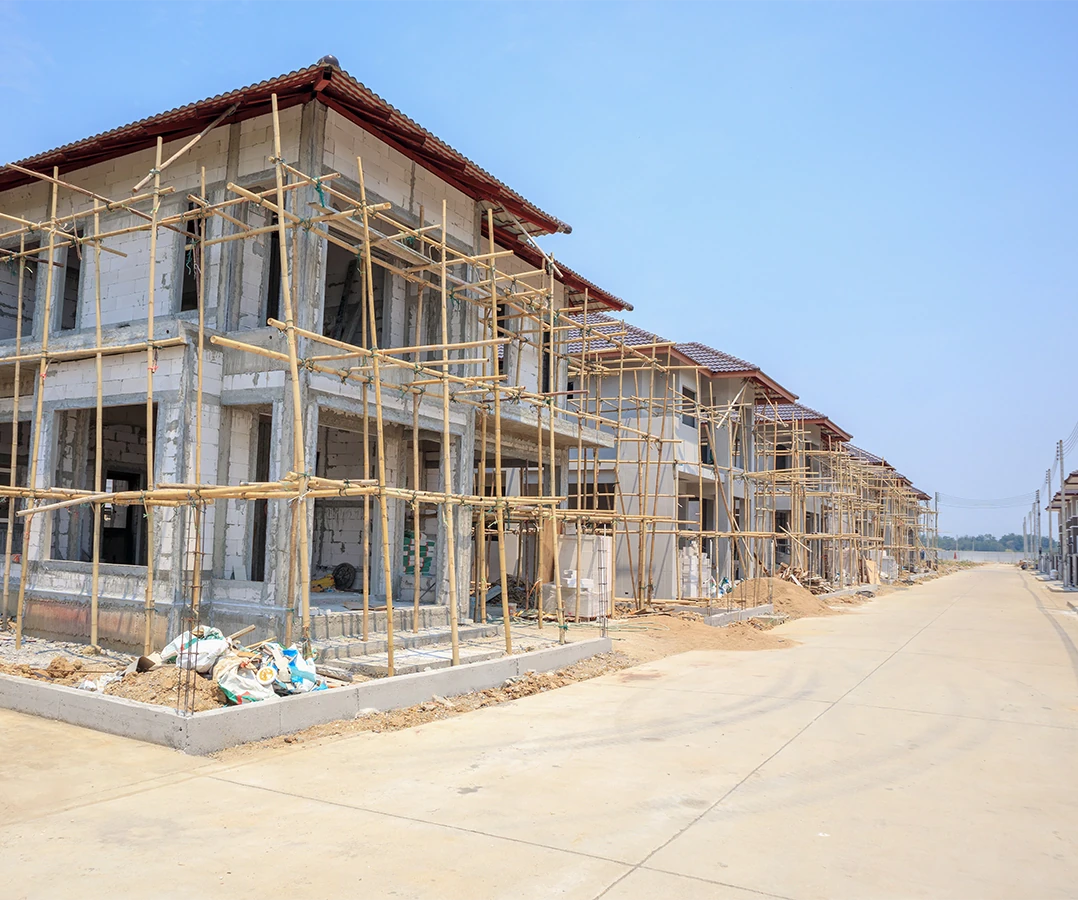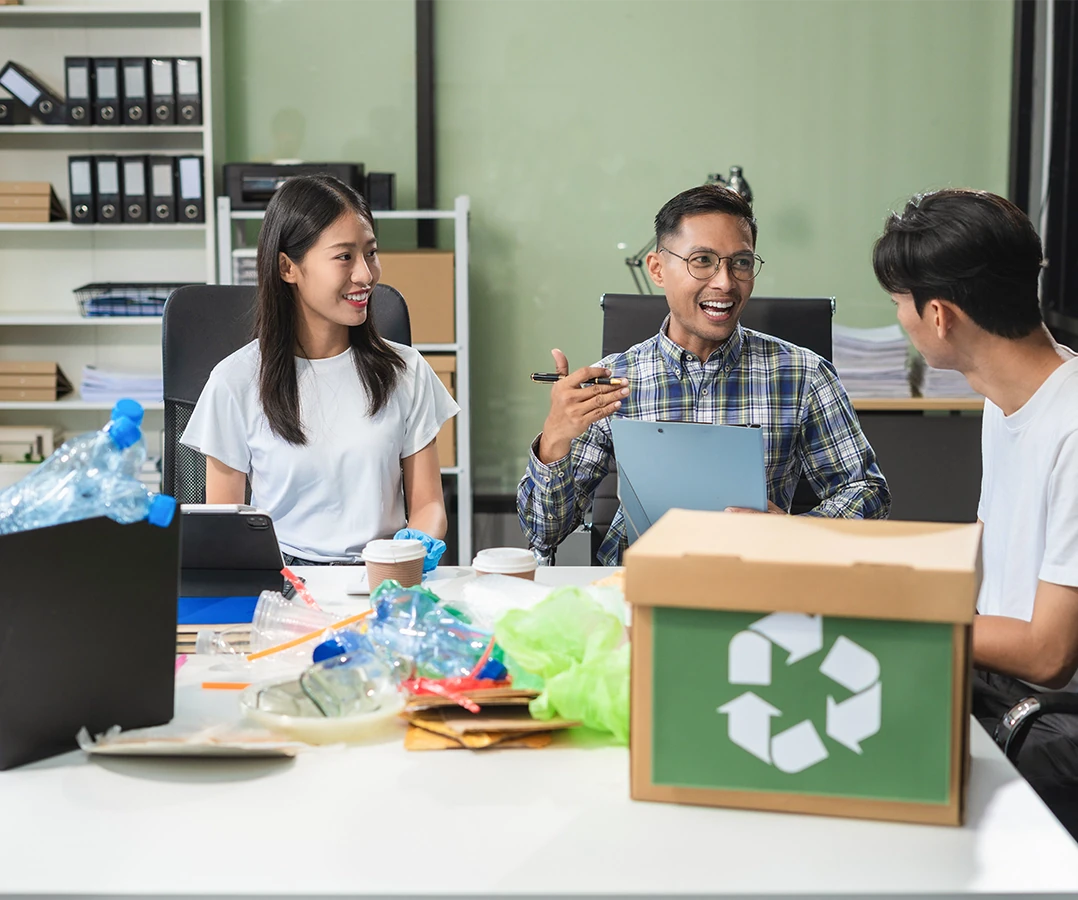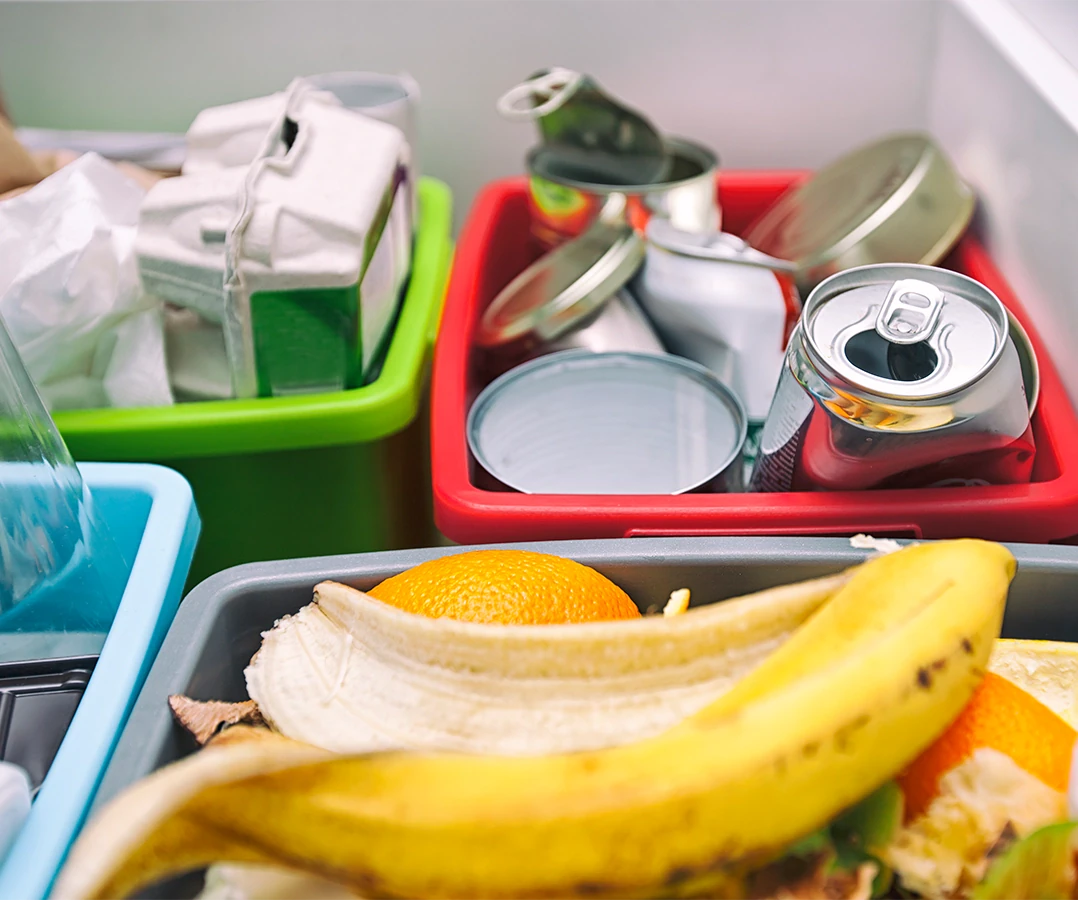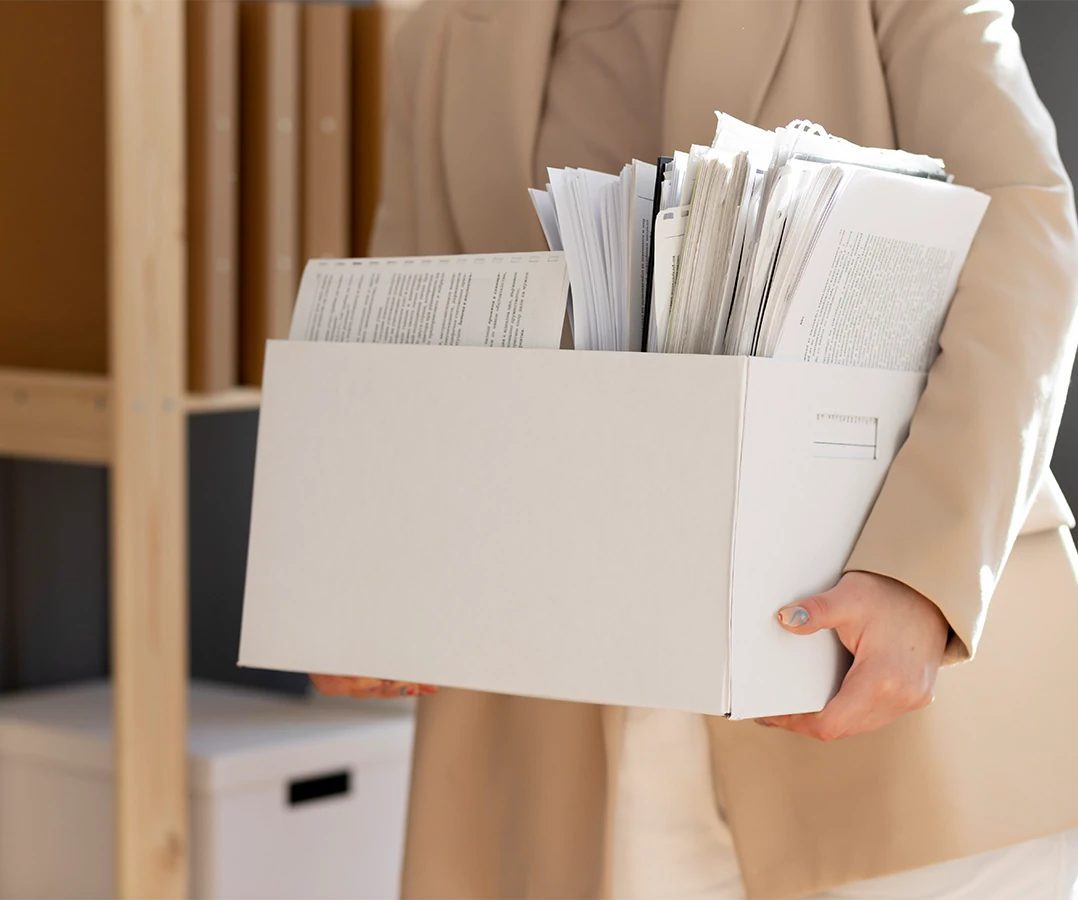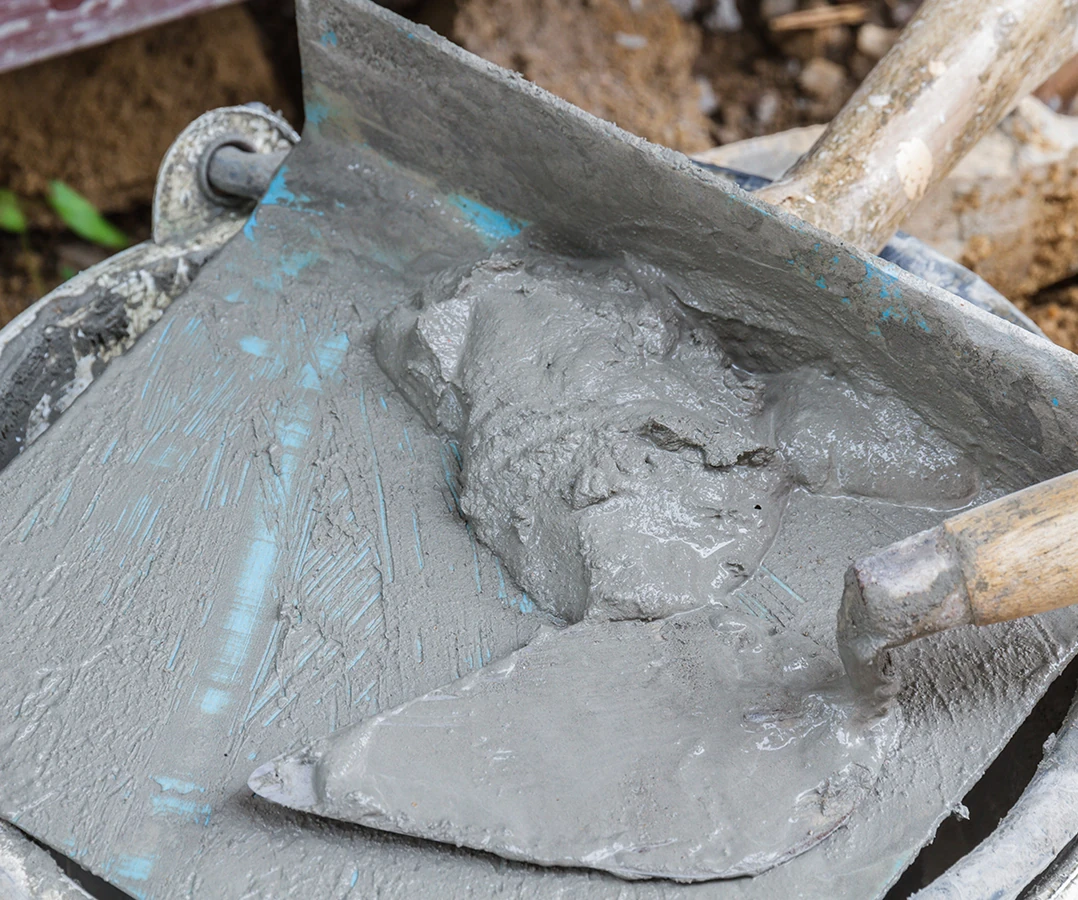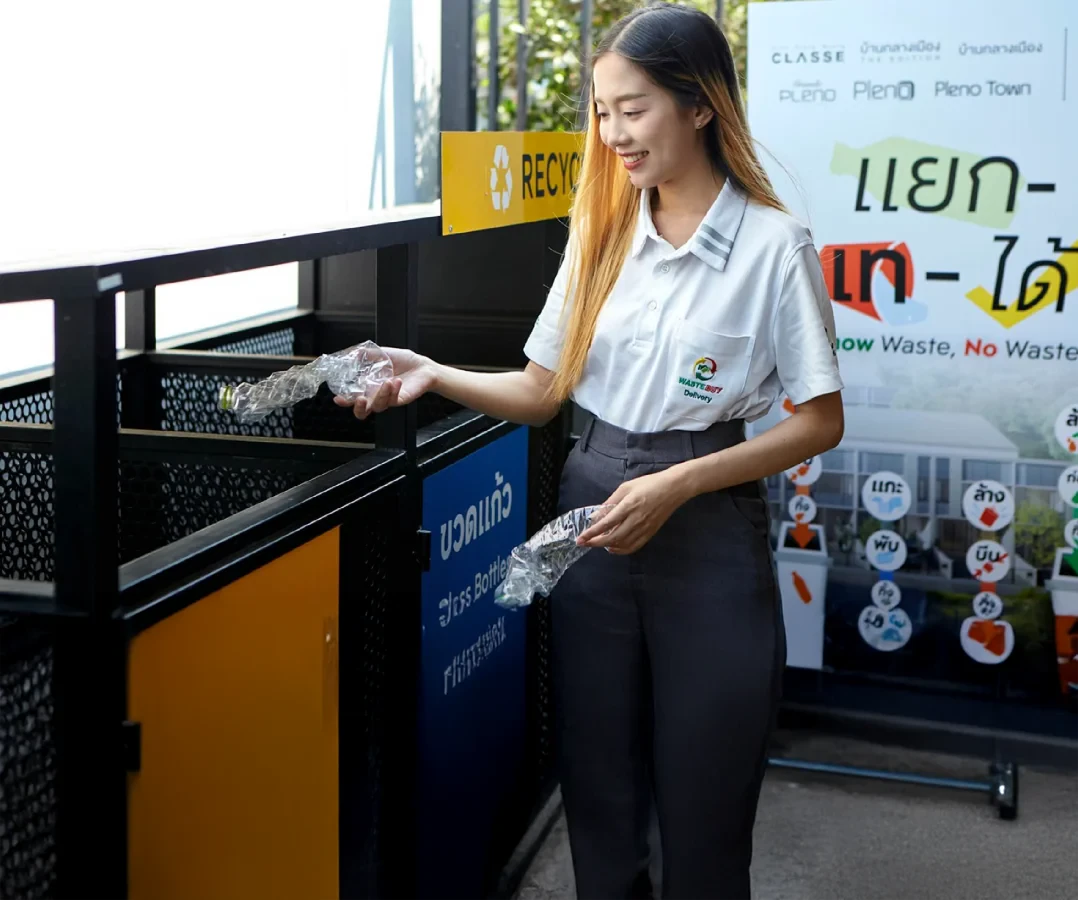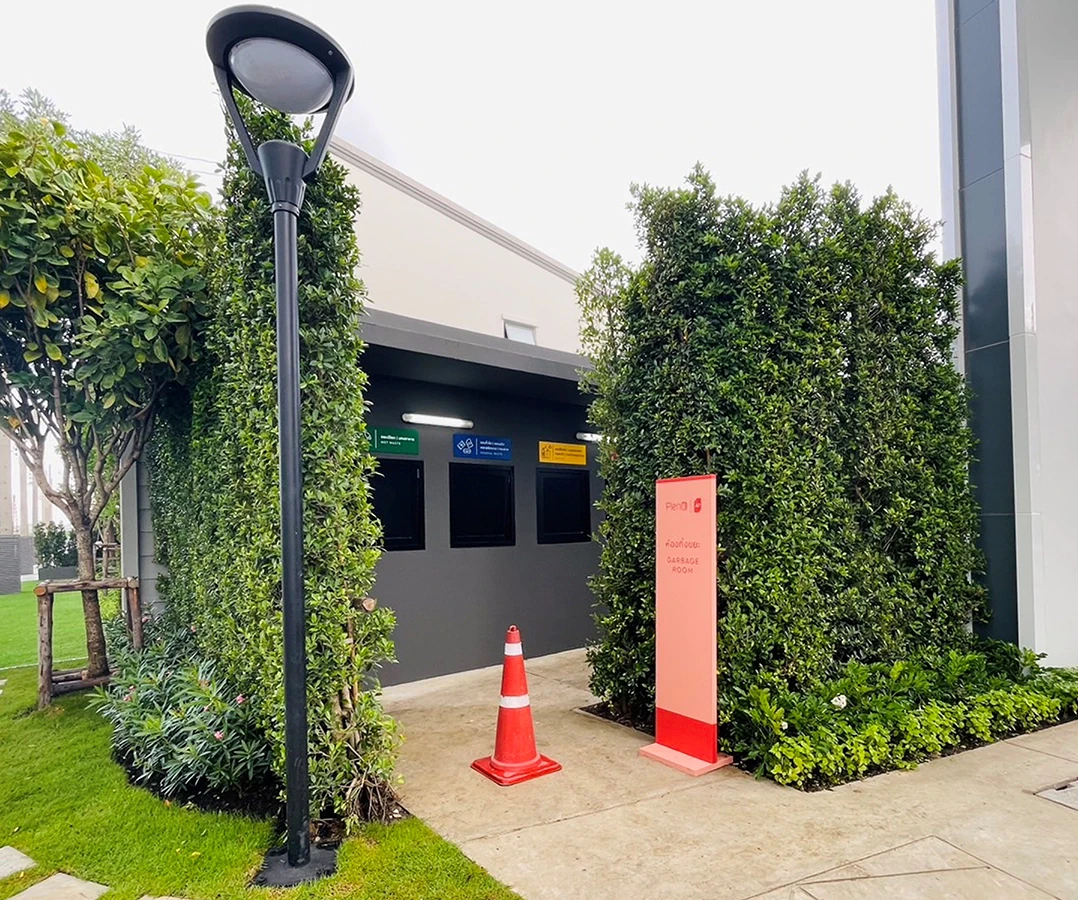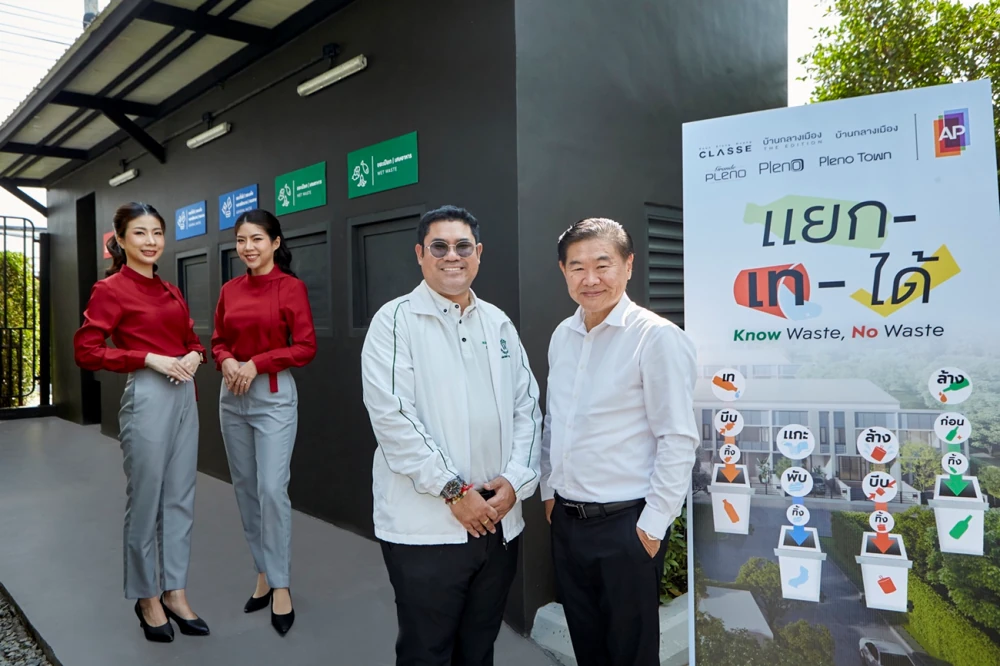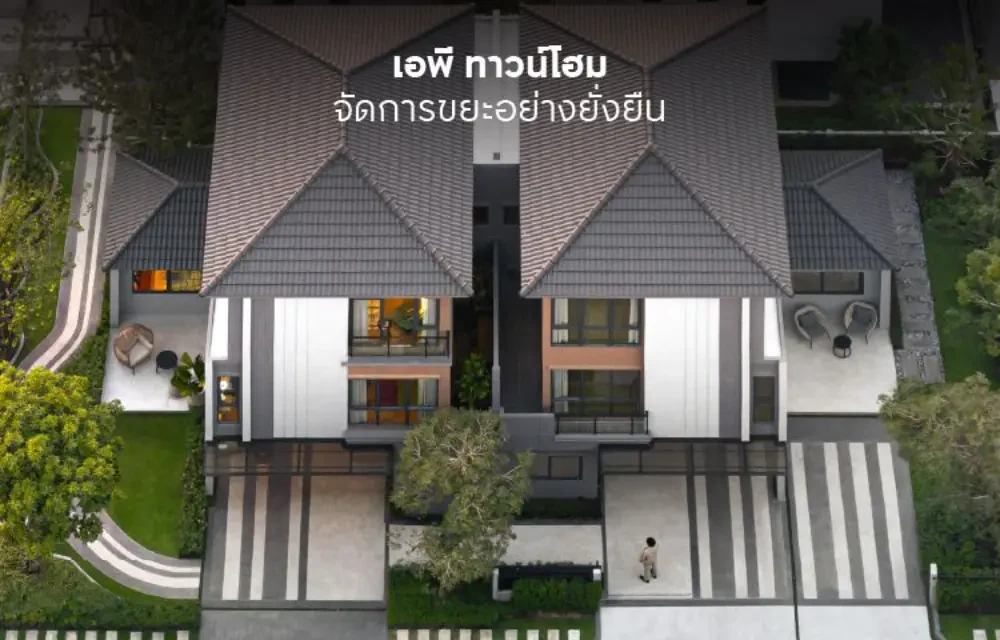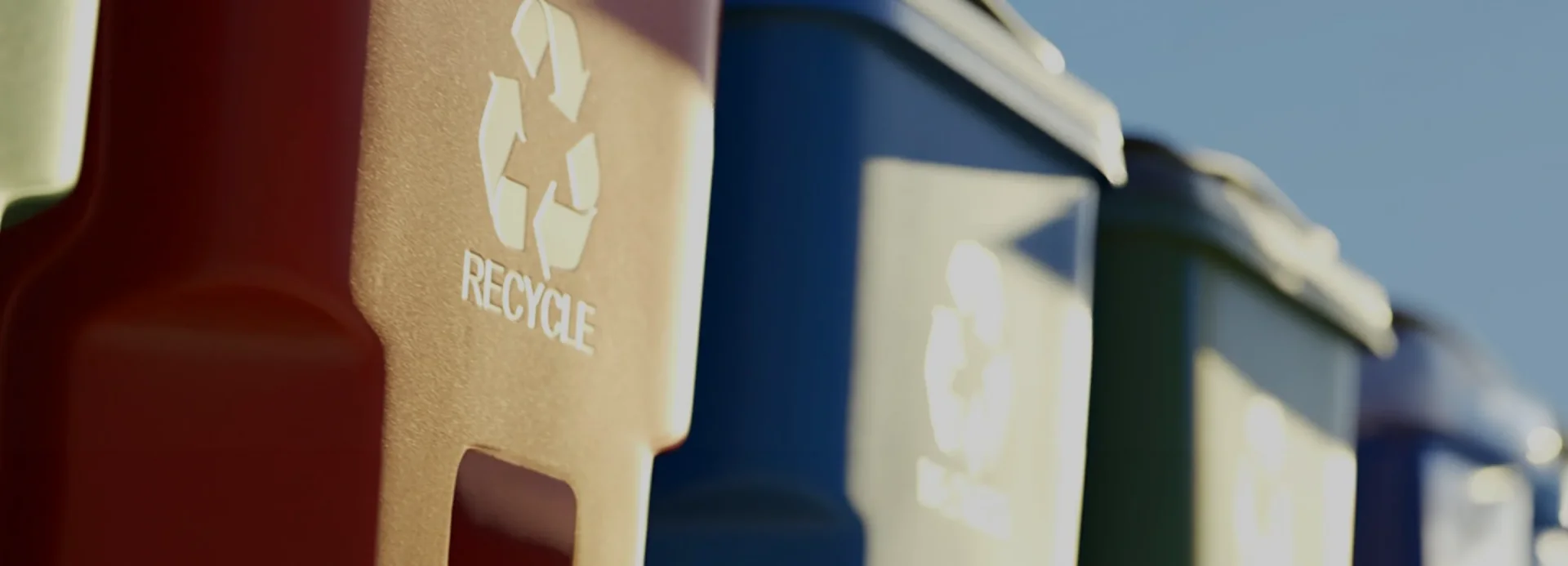
Pollution and Waste Management
goals
Performance Highlights
Our Commitment
In every step of business operations, AP Thailand does not merely focus on building residences but also places importance on maintaining a balance between urban development and serious environmental stewardship. Pollution and waste management have thus become core missions embedded in the company’s processes. AP Thailand recognizes that pollution from construction and waste generated from each project not only affect the surrounding environment but also impact the long-term quality of life for the community. As a result, AP Thailand has established clear guidelines to reduce emissions at every stage, from selecting environmentally friendly materials to installing technological equipment at construction sites and completed buildings to control dust, smoke, and greenhouse gas emissions.
In terms of waste, AP Thailand believes that good management starts from the source. Therefore, every work sites implements waste segregation from the point of origin. Meanwhile, the company also develops efficient wastewater treatment systems and reuses them to significantly reduce the use of fresh water. Moreover, AP Thailand adheres to the principles of the Circular Economy as a core development approach, for example, by repurposing construction surplus for landscape work or temporary structures within project areas. The company also collaborates with partners to select materials that are recyclable or upcyclable, thereby reducing environmental burdens and maximizing the value of limited natural resources.
Supporting the SDGs Goals
Stakeholders Directly Impacted
Challenges and Opportunities
Pollution, waste, and wastewater are among the major challenges in the real estate industry. Construction and project operations may adversely affect the environment through construction debris, dust, air pollution, and wastewater released into ecosystems. Increasingly strict environmental regulations, such as those on PM2.5 dust reduction, landfill waste restrictions, and wastewater quality standards require companies to adapt in order to minimize environmental impact.
Moreover, the high cost of eco-friendly materials and effective wastewater treatment systems remains a key obstacle. However, the circular economy trend presents opportunities for companies to reuse materials. For example, using recycled concrete and steel to reduce waste and enhance the value of existing resources. The use of Building Information Modeling (BIM) also helps reduce waste caused by design errors.
At the same time, the Company has enhanced the efficiency of wastewater management by using modern wastewater treatment systems and recycling water for reuse in common areas of the projects. Changes in consumer behavior toward choosing eco-friendly developments have created opportunities for AP Thailand to develop projects that use materials with lower environmental impacts, improve wastewater quality, and increase green spaces. These actions not only reduce pollution but also create long-term business competitive advantages and sustainable value for society and the environment.
Management Approach and Value Creation
AP Thailand is committed to conducting business under the concept of “Green Real Estate Development,” placing importance on systematic pollution and waste management to minimize environmental impacts and enhance the quality of life for surrounding communities. Real estate development involves not only design and construction but also consideration of waste management throughout the construction and other processes, including air and wastewater pollution control. This ensures that the company’s projects meet international environmental standards.
Wastewater Quality Management
AP Thailand places great importance on the efficient management of wastewater to prevent negative impacts on the environment and surrounding communities. The company’s projects operate under guidelines that emphasize responsible water usage, from controlling the quality of discharged water to water recycling. This approach helps maximize resource efficiency and minimize impacts on the community, society, and environment.

In all of the company’s projects, AP Thailand has installed efficient and standardized wastewater treatment systems to handle wastewater from residential buildings and common areas before discharging into public water sources or external drainage systems. The company regularly monitors and controls the quality of discharged water to ensure compliance with legal standards and relevant authorities.
In 2024, the company implemented systematic measures to reuse treated water within the projects. For example, for watering plants, cleaning common areas, and using in dust suppression systems. These measures help reduce tap water usage and promote the responsible use of water resources.
Additionally, AP Thailand has partnered with business allies to develop sustainable water management approaches, such as selecting drought-tolerant plant species for landscaping and improving irrigation systems for maximum efficiency in project areas.

Air Pollution Management
AP Thailand is well aware that managing air pollution is one of the key responsibilities of an environmentally conscious real estate business, especially during the construction phase, which poses a high risk of dust generation that could impact the health of nearby communities. Therefore, the company has designed a comprehensive dust control strategy encompassing technical, engineering, and community participation measures to ensure that our development projects do not become a burden on the environment.
In 2024, AP Thailand has strengthened air pollution mitigation measures in tangible ways, including installing solid fences and dust nets, regularly spraying water, covering construction materials and dust-prone substances, limiting vehicle speeds on site to no more than 20 km/h, and washing vehicle tires before leaving the site. All these are part of controlling PM10 dust levels to remain within the standard limit. The company has set the standard at no more than 0.12 milligrams per cubic meter, and monitoring reports on air quality measurement show that this target has been successfully maintained across all projects.
For large-scale projects, AP Thailand has also implemented real-time PM2.5 dust monitoring systems to enable timely adjustments of measures based on actual environmental conditions. To ensure transparency, the Company publicly displays air quality data at the project entrance, allowing the public to monitor it at any time.
Not only for the exterior of buildings, AP Thailand also puts the emphasis on the importance of indoor air quality by choosing construction and decorative materials that emit no VOCs. Additionally, ventilation systems are designed for efficient airflow, and air purifiers are installed in the Clubhouse to promote residents' well-being in all dimensions.
In 2024, the company receives no complaints from the community regarding air pollution. This success was not due to measures alone but stemmed from AP Thailand’s sincere commitment to developing projects responsibly, for the future of the environment and the sustainable quality of life for everyone.
Waste Management
AP Thailand places great importance on waste management across all aspects of the company’s business operations; at office locations, construction sites, and residential areas. The company adopts the Circular Economy approach, which focuses on maximizing resource efficiency and minimizing waste as much as possible.
The waste management approach comprises three core dimensions: designing with a focus on efficient resource use, controlling material consumption, and managing waste at construction sites, and promoting active participation from employees, residents, and business partners to ensure proper waste segregation and disposal.

Important activities in 2024 include:
- The “Waste to Value” project, in collaboration with Q-CON, repurposes construction debris, such as brick and concrete waste, by recycling it into ventilation concrete blocks. These are then used in actual projects, reducing construction waste and minimizing the use of new resources.
- The “Know Waste, No Waste” project installs designated waste-sorting stations at the entrances of residential developments. The initiative includes awareness campaigns and reward programs for participating residents and staff. As of 2024, over 30 projects have joined, resulting in a carbon dioxide reduction of 19,345 kgCO2e, equivalent to planting more than 2,021 trees.
- Promoting awareness and environmental responsibility among employees through the "Separate Waste, Start with Yourself, for a Sustainable World" activity along with installing new waste bins that support the separation of five waste categories within office premises.
- Hazardous waste, such as light bulbs and chemicals, is segregated and stored, then transferred to licensed agencies for proper disposal in accordance with the law.

Training and Capacity Building for Employees
AP Thailand provides training in waste and waste management to ensure that everyone can follow the company's sustainable practices. The company has organized communication and activities for all employees to participate in learning about waste management, including condominium and housing estate management teams, to enhance knowledge on waste separation at the source and techniques to reduce construction waste.
Building Collaboration with Business Partners
AP Thailand recognizes that effective pollution and waste management cannot be achieved alone. Therefore, the company places importance on collaboration with business partners to promote the use of environmentally friendly materials, reduce waste from the construction process, and support circular economy practices.

The company has also collaborated with construction material suppliers and partners in selecting materials for project development, such as the use of low-carbon concrete to reduce greenhouse gas emissions from cement usage, a material that releases high levels of carbon in the construction industry. Additionally, the company has made significant efforts to reduce waste generated during the construction process and to maximize the opportunity to reuse materials.
These collaborations not only help AP Thailand reduce its environmental impact but also contribute to setting a new standard in environmentally friendly real estate development. They also support the company’s goal of becoming a leader in sustainability within Thailand’s real estate industry.
